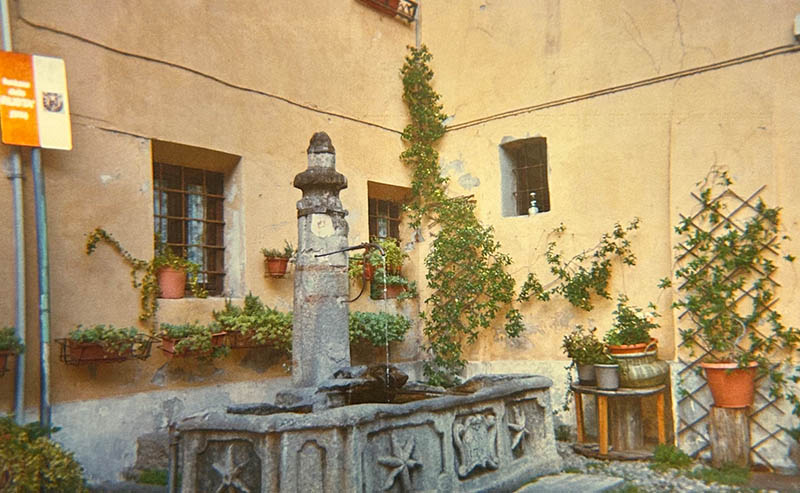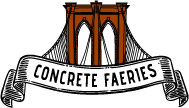
Breathless
Denis was a Parisian who liked to clutch cigarettes, twirling them in his fingers. He adorned his breast pocket with extras, even though his lungs couldn’t handle the smoke. His reasoning was that the smoke would fester in his body until he no longer loved me or life. He carried them, he said, to appear strong enough to not let the gestation of “cackling smoke fetuses” faze him.
From what I knew, he had only actually smoked once, as a young ten year old in arrondissement trois who wanted to mimic Belmondo in Breathless. While Belmondo’s mouth grappled a cigarette, his clueless American lover, who I assumed the role of, bit the temples of her sunglasses seductively. We had a May-December relationship, and he took great delight in the cluelessness that apparently came with age. He kept trying to teach me about certain things, like books or French New Wave. He was the one to introduce me to “Breathless.” His nickname for me was “Yé-Yé”—I too was as innocent and clean as those little French girls who yearned for adult love.
He didn’t have a middle name. The combination of a crisp first and last name made him feel clean. He was someone who went only by his last name. “People in the movies don’t go by Constance Frances Marie Ockelman. They go by Veronica Lake.” I didn’t call him Denis to his face. We shared an apartment. It was small. The place was impressive nonetheless though. Early on in our relationship, when we had first bought it, we spent the mornings on the bathroom floor, legs crossed, building complicated mosaics of vaguely photographic images of peonies and tigers running up staircases. Every Saturday night, when all of our friends would go out to museums or bars, we would go to the junkyard with a hammer to smash colored glass and collect them in a small woven sack. He would wear one sock, to leave his lucky left foot free from imprisonment, and I would wear two. I found it childish, the way he didn’t care about his body—after all, upright nails littered the junkyard’s dirt floor.
Most mornings—or “mournings,” as he called them, as we were mourning the loss of our sleep and of our dreams—he would be the one to wake me up. Our bed was always knotted, the sheets usually tied around my throat and arms. He kicked and flung the sheets at night. It was like he had this undercover side to him—in the unconscious, he was crazed and enthusiastic. He would open a journal that was on his bed stand, and turn to his side to write in it. It was his “dream journal.” He told me liked to catch his dreams, and then release them.
“Like the moths in our jar,” he explained once. I never dared to open the book. I knew that once I did, something terrifying about our relationship would reveal itself. “Dreams are extremely telling,” he would say. Perhaps he didn’t like that I strained my orange juice to remove the pithy clumps, or how I would sign up for yoga classes but cancel them last minute. Maybe he didn’t find my crazy quirks as endearing as I prayed he did. I didn’t want to confirm my irrational fears. Or worse, maybe his dreams were bland and meaningless, and it turned out he wasn’t Belmondo in the slightest.
I, on the other hand, just wrote my dreams in the flyleaf of whatever novel I had last been reading. He would look at them and laugh, finding delight in my tales of beach drownings, bank robberies, and having someone spill hot coffee on me and buy me expensive new clothes as an apology (that one came often). “The horror of unknown pain,” I had once written in a book, commenting on the anxiety of waiting for the results of a doctor’s examination.
Denis especially took joy in a recurring dream of mine, where I would be tied and tossed into the ocean while completely conscious, and watch my skin slowly slip off my body. I had found out, somewhat unfortunately, that skin slippage was a natural part of the decomposition process and it caused me perpetual disgust. He, like I did to him, I guess, loved that I had a mysterious side to me, a side where I would take pleasure—he always said, “why would we find disgust in what we choose to imagine?”—in the distillation of a body, a process to separate the “dirty” me from the “clean” me. Some thoughts, he said, will dress your body in frayed cassocks.
◴ ◷ ◶ ◵
I took a long bath after work one day. He usually took even longer ones. I sat in a puddle of my sweat and grime, soaping the little bumps on my legs. I liked the sounds of water creating sweet vibrations against my skin and the edge of the tub. I could see the reflections of the gorgeous tile that he and I had painstakingly glued to the bathroom ceiling from the water. Those peonies and lily pads—to me, it was such a strange combination—festered in the water along with me. The water pressure felt like a straitjacket wrapped around me. I felt like I was bathing in thick soup—the soap was animal fat clustering in corners and running in all of my orifices. It was pleasant and filling. I crossed my arms over my chest and submerged myself underneath the reflecting flowers. Some of us belonged there (the lily pads liked the water) and some of us didn’t (“would my skin slip?” I worried. And I knew for a fact peonies couldn’t handle such a submersion).
He joined me, and disrupted the gorgeous patterns I had made with the lily pads and my hair. He clobbered onto my body, sliding back and forth between it and the porcelain sides of the bathtub. He couldn’t fit. The tub was too small and too “Yé-Yé” to contain him as well.
I had fallen asleep there. (My mother always told me to never fall asleep in the bathtub—she watched television advertisements that warned that hundreds of folks drowned by accident that way. I had called her paranoid.)
Denis found me, half submerged with my tumescent skin creating blanched crimps with the excessive moisture. He shook me and turned me over away from the ceiling. He grabbed a razor off of the ledge and started to peel off little flakes of my skin that had unattached after being in the water for so long. He was a cat licking her kittens clean. I could feel his touch, but was too exhausted to move in response to it. When he squeezed my skin and scraped with the razor harder, little mountains of my flesh pushed upwards. The skin itself didn’t wrinkle more, however, like he had thought it would. “The benefits of youth,” I heard him grumble. He used my neck to push me down further. He sat on top of me to get a better grip, angling his elbow against my heart.
After a while, I was able to resume my underwater lurking, peeking out underneath the lily pads.
“The horror of unknown pain,” I had once written. Dreams are extremely telling.


